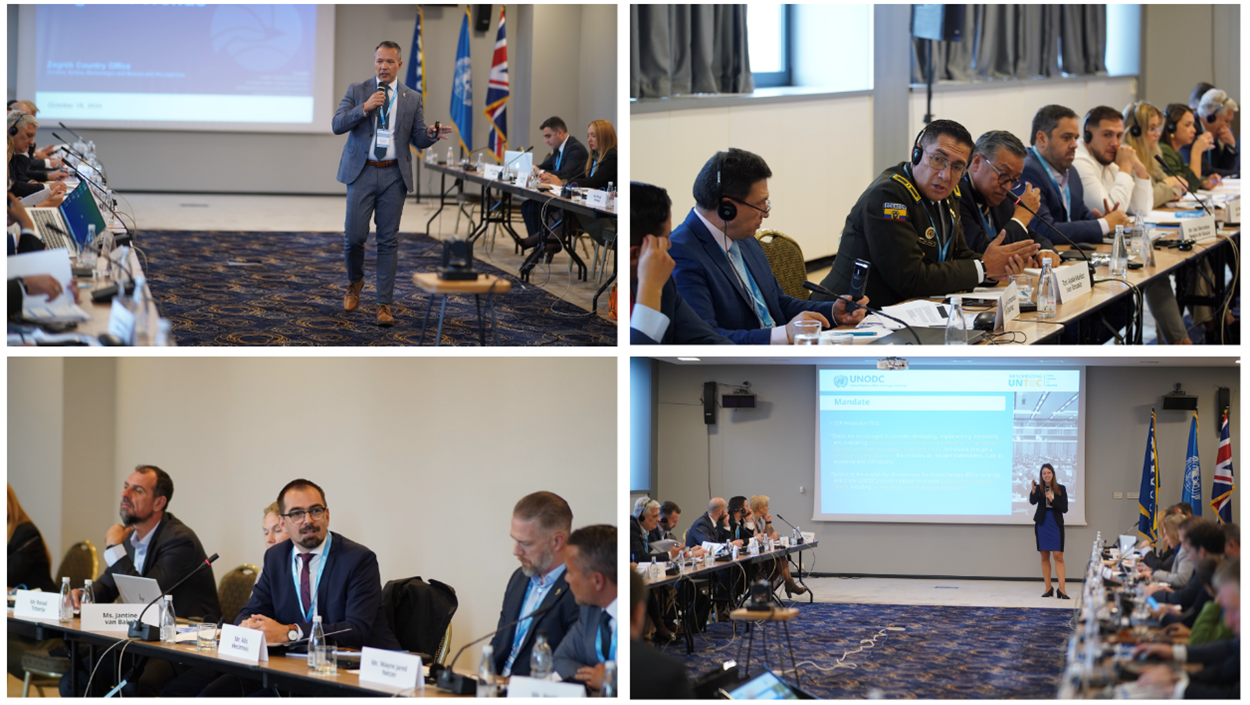UNODC Promotes Concerted Efforts to Confront the Challenge of Cocaine Trafficking from South America to the Balkans

21-25 October 2024, Sarajevo (Bosnia and Herzegovina), Over the last ten years, global cocaine production has increased significantly. In 2022, 2,700 tons of cocaine were produced worldwide, a 20 per cent rise from 2021 and three times the amount produced a decade earlier. This upward trend reflects an expansion in coca bush cultivation in South America and improvements in the conversion process from coca bush to cocaine hydrochloride. At the same time, there has been rising demand, with the number of cocaine users increasing, including in parts of Europe.
To better understand the latest trends in transatlantic cocaine trafficking and to identify coping mechanisms and mitigation measures, UNODC recently held a five-day expert meeting and systems analysis mapping exercise in Sarajevo, Bosnia and Herzegovina.
“Using the convening power of the UN to bring together officials from two regions to share information, best practices and experiences, is essential in helping Member States understand and ultimately disrupt criminal groups involved in cocaine trafficking,” emphasised Michael Osman from the UNODC Global Programme on Criminal Network Disruption.
The meeting gathered representatives from Albania, Bosnia and Herzegovina, Brazil, Colombia, Croatia, Ecuador, Montenegro, the Netherlands, North Macedonia and Türkiye. Experts from key partners, such as EUROPOL, the Maritime Analysis and Operations Centre (Narcotics) – MAOC (N), the United States Drug Enforcement Administration, the European Union Drugs Agency, and the UK Embassy in Sarajevo, also participated.
Discussions focused on the impact of transatlantic cocaine trafficking, in which criminal networks from or with links to the Western Balkans have become major players. These networks operate across geographical boundaries, sharing resources, services and information about smuggling methods and routes from source to transit and distribution countries.
The event’s main objective was to provide decision makers and lead risk analysts from a range of agencies and jurisdictions with a platform to discuss a concerted response to cocaine trafficking and related organized crime threats from an interregional perspective.
Importantly, the expert meeting placed the discussion on cocaine trafficking in the context of comprehensive strategic frameworks to prevent and combat organized crime, with examples from Bosnia and Herzegovina and Ecuador presented during the event. At the operational level, the mapping exercise identified specific measures that could be taken based on a systems analysis and disruption planning process.
In addition to mapping the structures and modus operandi of criminal networks involved in cocaine trafficking from South America to the Balkans and discussing best practices and challenges in law enforcement responses and cross-border cooperation, the event allowed for bilateral discussions between prosecutors and law enforcement from participating countries in relation to active cocaine trafficking cases.
The event, organized by the UNODC Regional Office for South-Eastern Europe, the UNODC Regional Office for the Andean Region and Southern Cone, and the UNODC Global Programme on Criminal Network Disruption, was made possible thanks to the generous financial support from the United Kingdom.